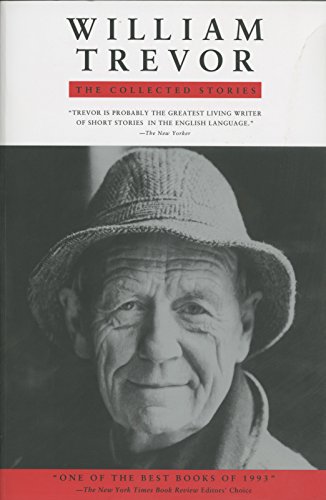Having only last week praised “Her Mother’s Daughter” as a story only Trevor would write, I will now praise “Bodily Secrets” as a story anyone would like to write. By my count it is one of about 10 stories in the Collected that stand as an example of formal perfection. Perhaps it would be worth discussing, in this installment, what it might mean to make that statement, and to do so, I will use the formulation that I use in my creative writing classes: A short story places a character in a situation that puts pressure on them, causing them to change.
The character in “Bodily Secrets” is Mrs. O’Neill, the wealthy 59-year-old widow of a coal magnate. Mrs. O’Neill lives in a small Irish town in the Italianate villa her husband built, amusingly called Arcangelo House (Trevor plays this extraordinarily straight, but I think we’re meant to infer vulgarity here—how could we not). Mrs. O’Neill plays golf and drinks at the country club with the town’s other wealthy people, but isn’t satisfied, and this—the desire to remarry—represents the problem of the story. Actually, it’s the explicit problem of the ancillary principal as well, Mr. Agnew, the manager of Mrs. O’Neill’s late husband’s pet project, a toy factory that has not turned a profit in years. Mrs. O’Neill’s repellent son Cathal wants the factory closed, and Mr. Agnew will be jobless at 51. In a sense, “Bodily Secrets” is about the perils of too-early retirement.
This situation puts pressure on Mrs. O’Neill and Mr. Agnew, and they ultimately become engaged to the consternation of Cathal and Mrs. O’Neill’s two daughters, another form of pressure. But Mrs. O’Neill persists and they are wed, at which point the story divulges Mr. Agnew’s homosexuality—a bodily secret alluded to throughout with references to Mr. Agnew’s frequent trips to Dublin. We thereupon see how the marriage will work—his lack of desire for Mrs. O’Neill is a feature, not a bug, as she despises her own aging body. It is a mutual arrangement, financial for Mr. Agnew and emotional for Mrs. O’Neill. As she thinks, dancing with Mr. Agnew at the club Christmas party: “Within a week the family would no longer possess her. Cathal’s far apart eyes would no longer dismiss her as a remnant of the dead.”
Do they, according to my formulation, change? Not really, but it is not incumbent upon a character to change, for an epiphany to make anyone’s eyes burn with anguish and anger. What is important is that a story consider the possibility of change—in many if not most Trevor pieces, true change is not a possibility; in the case of “Bodily Secrets” it is not even especially desirable. Mrs. O’Neill’s body and Mr. Agnew’s trips to the Dublin bathhouses fill them with respective self-loathing, but these are not mutable people; what they can change are the terms of their lives, and this arrangement affords them both dignity, the most precious commodity in Trevorania. They intended to plant an apple orchard where the toy factory was, a dignified shared avocation for these still separate people.
The story contains all the small elements of classic short storytelling, as well. Cathal is a great minor antagonist, whose rage at his mother provides the resistance needed to make her actions meaningful. The small cast of ancillary characters at the country club are quickly and memorably drawn. And there is a strong central image in the form of the toy factory’s only remaining product, a wooden terrier on wheels. This toy, like Mrs. O’Neill and Mr. Agnew, is from a different era and its craftsmanship represent that era’s virtues, virtues reflected in their characters: durability and thoughtful care. It is also, like them, faintly ridiculous. The actions they take are actions to ward away their own obsolescence, and I found their arrangement moving and human. Don’t we all, as we age, fear becoming wooden dogs on wheels?









